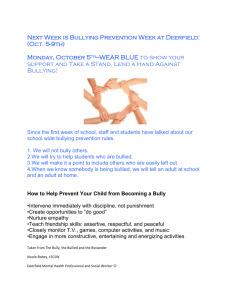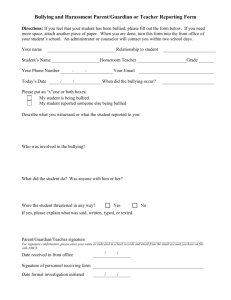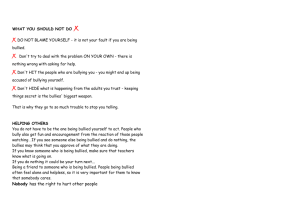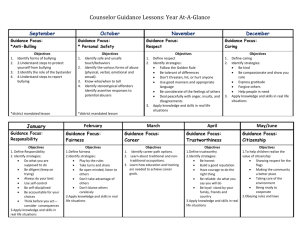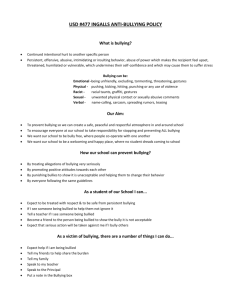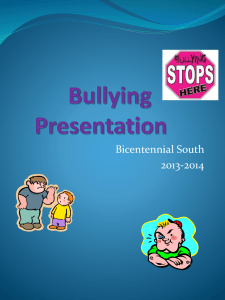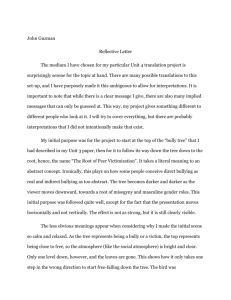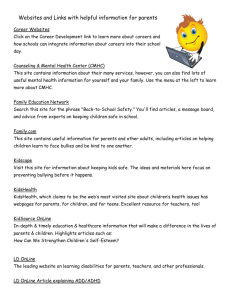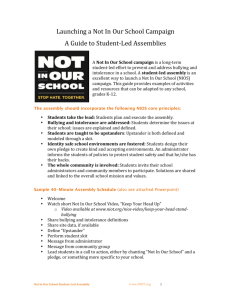What does it mean to be an UPSTANDER?
advertisement
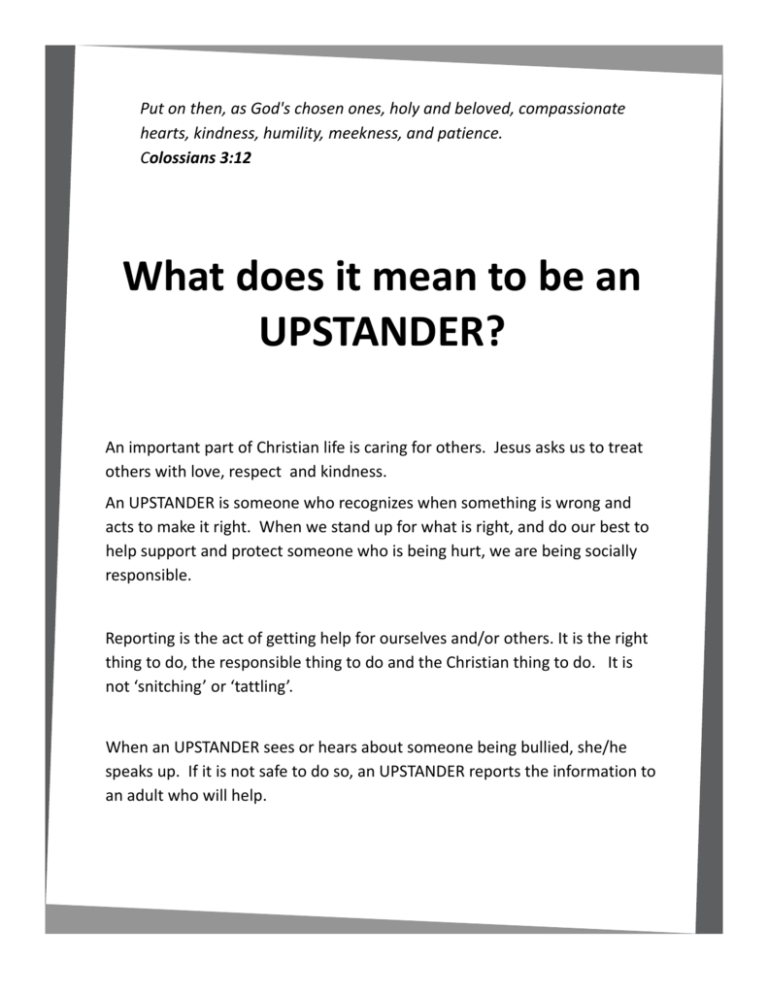
Put on then, as God's chosen ones, holy and beloved, compassionate hearts, kindness, humility, meekness, and patience. Colossians 3:12 What does it mean to be an UPSTANDER? An important part of Christian life is caring for others. Jesus asks us to treat others with love, respect and kindness. An UPSTANDER is someone who recognizes when something is wrong and acts to make it right. When we stand up for what is right, and do our best to help support and protect someone who is being hurt, we are being socially responsible. Reporting is the act of getting help for ourselves and/or others. It is the right thing to do, the responsible thing to do and the Christian thing to do. It is not ‘snitching’ or ‘tattling’. When an UPSTANDER sees or hears about someone being bullied, she/he speaks up. If it is not safe to do so, an UPSTANDER reports the information to an adult who will help. You shall not take vengeance or bear a grudge against the sons of your own people, but you shall love your neighbour as yourself: I am the Lord. Leviticus 19:18 10 Ways To Be An Upstander Every day we have the opportunity to make our schools (and our world!) a better place. Putting an end to bullying is everyone's responsibility. When we work together and stand strong against bullying, we are creating communities that are stronger, safer, and more supportive - places where every person is valued for who they are. Here's how YOU can help: 1. Learn more about bullying. Educate yourself and your community about bullying, e.g., www.bullying .org or BullyBust.org. For example: Why do kids bully? Where does bullying take place most often in your school? What are the effects of bullying? How can we prevent it? Understanding this information will help you if you are bullied, and will help you to stand up to bullies if a friend or classmate is being bullied. 2. Help others who are being bullied. Be a friend, even if this person is not yet your friend. Go over to him/her. Walk with the person. Help him/her to talk to an adult about what happened. Think how great it would be if someone did this for you if you were being picked on or hurt! 3. Stop untrue or harmful messages from spreading online or in person. If someone sends a message that is harmful or untrue, stand up and let the person know it is wrong. Think about how you would feel if someone spread a rumor about you. Don’t laugh, don’t send the message on to friends, don’t add to the story. Make it clear that you do not think that kind of behavior is cool or funny. 4. Get friends involved. Let people know that you are an upstander and encourage others to be one too. Make it an everyday commitment for you and your friends. 5. Make friends outside of your circle. Eat lunch with someone who is alone. Show support for a person who is upset at school, by asking what is wrong or bringing them to an adult who can help. 6. Report bullying when it happens to you, or you witness it. Remember that reporting is the responsible thing to do and the right thing to do. In safe and caring schools, we look out for each other! 7. Welcome new students. If someone new arrives at your school, make an effort to introduce him/her to others and make him/her feel comfortable. Imagine how you would feel leaving your friends and coming to a new school where everyone and everything is unfamiliar. 8. Refuse to be a “bystander” and be a role model to others instead! If you see friends or classmates laughing along with a bully, remind them that this kind of behavior is not okay in your school. Remember to get adult help. 9. Respect others' differences and help others to respect differences. It’s cool for people to be different – that’s what makes us unique. Find ways to promote tolerance and appreciation for diversity in your school. 10. Develop a bullying project with a teacher or principal’s support that will help reduce bullying in your school. Bring together a team of students, parents and teachers who are committed to preventing bullying, and create a community-wide project to raise awareness, share stories and develop helpful supports. Material adapted from www.bullybust.org where additional information and free educator, student and parents supports are available..

